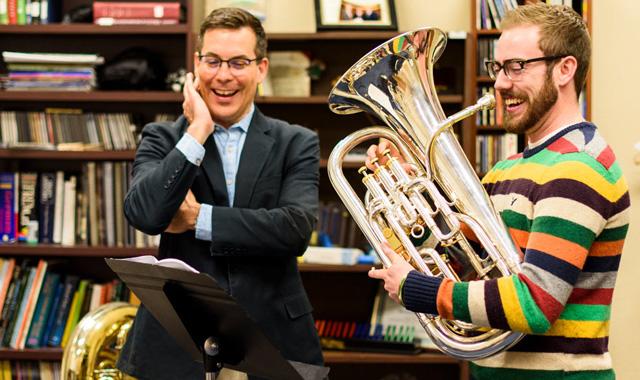Ph.D. Degree
Texas Tech University, a Tier 1 institution, is only one of a few universities in the state of Texas that offers a PhD in Music Education. This doctoral degree provides graduate students with the opportunity to study the history of music education, philosophies of music education, psychology of music, the examination and application of research methodologies within the discipline, and additional topics relevant to the teaching and learning of music education. The PhD in Music Education is offered in addition to a PhD in Fine Arts - Music with a Concentration in Music Education, the latter of which provides doctoral students with opportunities to explore both the fine arts and music education. By offering both of these doctoral degrees in music education, prospective doctoral students have two options from which they may choose for their pursuits of a terminal degree.






